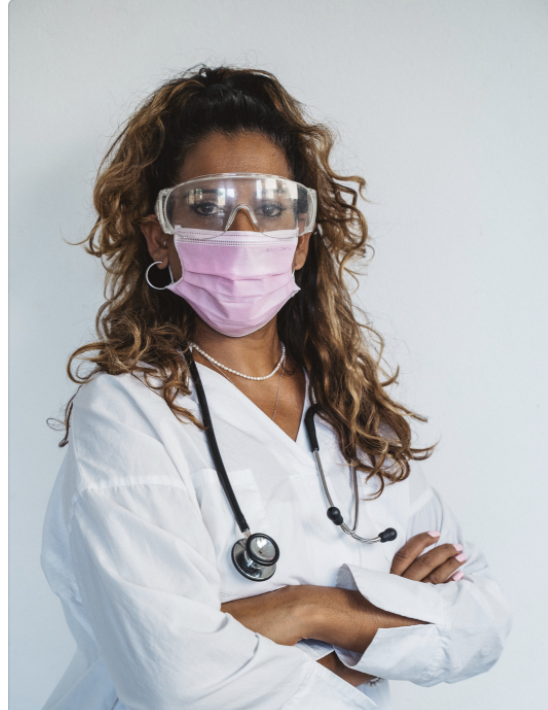Delta Debate: COVID Updates Regarding Variants and Booster Vaccinations
August 11, 2021

It’s been about 2 months since there’s been a post addressing COVID on agebuzz. That time lag tells you much about where experts thought the pandemic was heading and the reality of where we are now. While earlier this year it appeared that, as a country, we were on our way to quelling the worst of the pandemic and returning to some level of “normalcy,” in fact, as of mid-August, the future is much murkier. The Delta variant of the coronavirus is now raging through our country and experts have called for a return to mask-wearing indoors in areas of the country with high infection rates, regardless of vaccine status. Of course, it’s critical upfront to make one message loud and clear: Virtually all experts continue to bluntly state that getting vaccinated continues to be your best hope for protecting yourself and your loved ones, especially those who cannot be vaccinated due to their young age or medical condition.
For a bit of context: While in May the Delta variant caused about 1% of new Covid cases, that percentage has now skyrocketed to over 93% as of July of 2021. Cases of new Covid infections have doubled just in the last 2 weeks and hospitalizations due to Covid are now back to 1000s per day. Furthermore, it’s now likely that even if 70-80% of the population becomes fully vaccinated, that may not be sufficient to achieve herd immunity and get the virus under control. If there’s good news, it’s that among those over 65 in the United States, over 80% are now fully vaccinated and 90% of seniors are at least partly vaccinated. What accounts for this level of acceptance of the vaccine? Experts suggest it’s been the double-edged sword of “wisdom and fear” among older adults that have led to these high numbers. For the most part, the overwhelming majority of new cases arising are among those who are unvaccinated. Estimates are that 94-99% of all new cases are among those who are unvaccinated. For an easy-to-understand yet nuanced summary of where we stand with the Delta variant at this point, roll up your sleeve and read here. And for some practical advice on how to carry on day-to-day given quickly changing circumstances, quell your anxiety by clicking here.
Regarding “breakthrough” infections, i.e, new Covid infections among those already vaccinated: These are possible, though rare, and very unlikely to cause serious illness, hospitalization, or even death. It’s important to note, as a recent article in Scientific American makes clear, that breakthrough infections do not mean the vaccines don’t work. No vaccine has ever been 100% effective. For example, vaccines for viral infections such as influenza are often imperfect. Nonetheless, we still strive to get everyone vaccinated, as breakthrough infections are relatively uncommon and the severity of illness will likely be much less if you’ve been vaccinated.
What about booster shots? At this point, tactics are all over the map depending upon where you live, your age, and your health condition. For example, Israel has become the first country in the world to widely disseminate 3rd booster shots, with over ⅓ of Israeli adults over age 60 having received a booster. (It’s also useful to learn that of those Israeli’s who have received a booster of the Pfizer vaccine, most report the side effects from this 3rd shot were the same or better than their second shot.) The World Health Organization has called on developed nations to hold off giving booster shots at least until the end of September so that those parts of the world without high vaccination rates can boost their numbers. There’s also ongoing controversy in our country as to whether a 3rd shot is needed, at least for the majority of us who are already fully vaccinated. A small percentage (about 3%) of the country is immunosuppressed due to certain cancers, organ transplants, or other medical conditions, and for those individuals, it appears the FDA is on the verge of approving a booster shot within the coming days. But for the rest of us, booster shots are not likely to be imminently recommended or available. For more on this debate, click here.
As an older adult, however, you are still at some level of risk, even if vaccinated, and you should still take precautions to the extent possible. For example, recommendations continue to be to keep gathering outside when possible, to limit the size of indoor gatherings, and especially to protect yourself (with a mask) if you are uncertain of the vaccine status of those around you. For a recommended approach of inquiring whether someone physically close by is vaccinated, pull out your Emily Post and read here. And as time goes by and more data is reported, it’s becoming clearer that older adults don’t always have the same Covid symptoms as the rest of the population, and they may be at enhanced risk of cognitive decline if infected with Covid. So the bottom line has to be that caution still needs to be practiced, masks should be in place (especially when you don’t know the status of those around you), and by all means, if you haven’t yet, make sure to get fully vaccinated asap!







